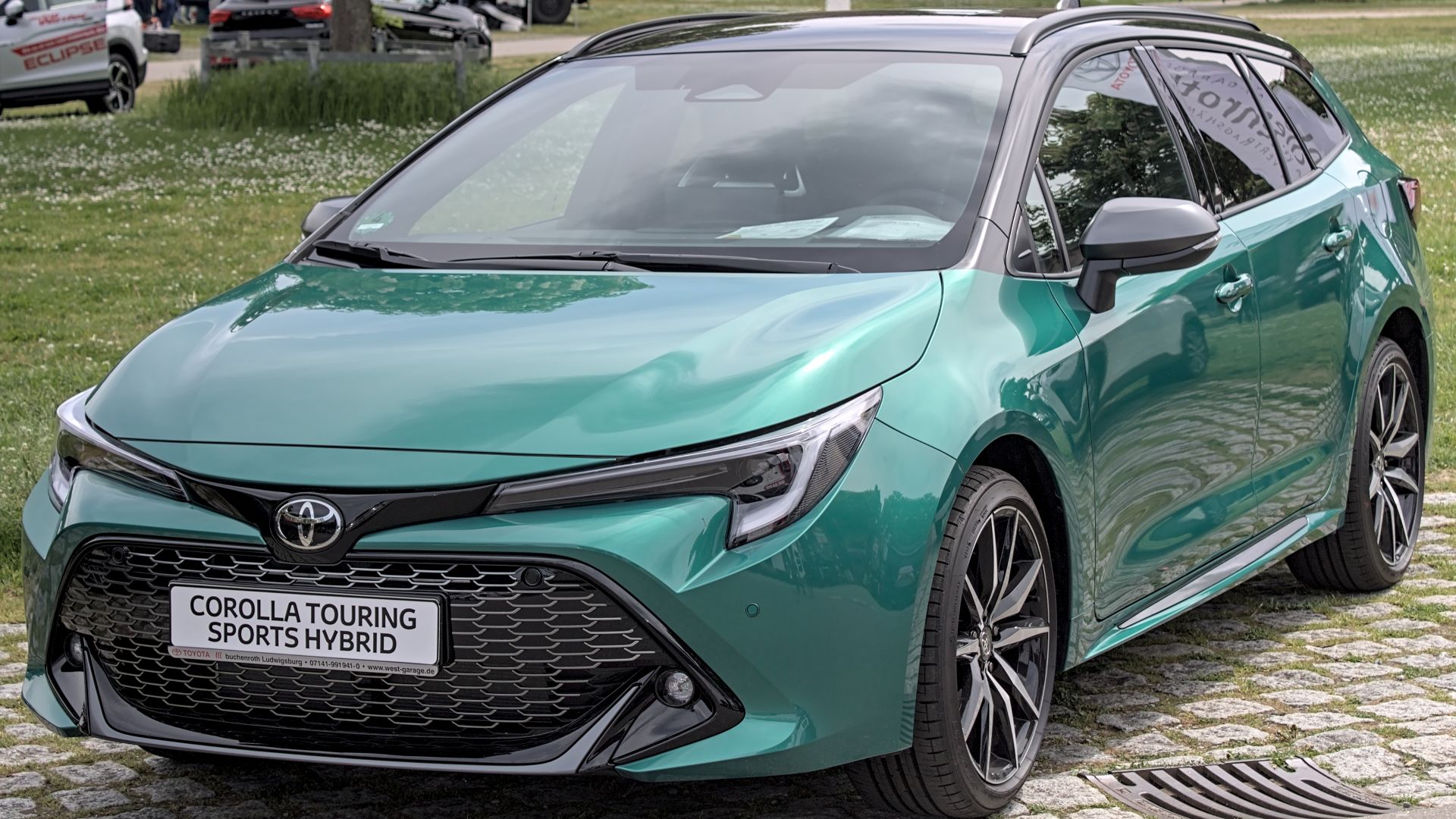Untangling The Mess Behind That Massive Monthly Bill
You signed for the keys feeling unstoppable. Now, the monthly hit for your car feels like it’s swallowing everything else in your budget. It’s everything: The insurance, the gas, the “little extras” that keep stacking up. Let’s unpack how it got so heavy and map out a way to trade in the stress for something that actually fits your life.

You Focused Only On Monthly Payments
Many buyers enter dealerships with a focus on the monthly payment, rather than the broader picture. Dealers lean into this and highlight what sounds affordable now. According to Experian, the average loan term is 68 months, which lowers monthly payments but adds more interest across the life of the loan.
You Focused Only On Monthly Payments (Cont.)
Let’s say you borrow $40,200 at 6.73% over five years. That’s approximately $795 a month and about $7,500 in interest, based on Experian’s 2025 loan data. If you stretch that loan to 72 months, the interest climbs. What felt easy then created years of financial pressure.
You Bought During A Price Surge
You probably felt pressured to act quickly because prices were rising and fewer vehicles were available. As demand spiked, especially for popular models, choices became limited. Without realizing it, you agreed to a deal that felt urgent at the time but ended up locking in long-term strain.
You Bought During A Price Surge (Cont.)
With fewer choices and growing pressure, you may have rushed into the deal without thinking it through. The payment seemed manageable at first, but it slowly drained your budget. That one quick decision left you with less room to adapt when life or expenses suddenly shifted.
You Didn’t Compare Financing Options
In many cases, accepting the dealership’s loan without checking other options is where the trouble starts. It’s easy to miss that step if things feel urgent. But skipping lender comparisons usually means locking into higher payments and losing out on a smarter, more affordable path forward.
You Didn’t Compare Financing Options (Cont.)
That quick yes might now be costing you more. Experian notes that loan terms can run anywhere from 36 to 84 months. And while your annual percentage rate (APR) covers interest and certain fees, Ramsey Solutions points out it doesn’t include taxes—meaning your real costs can go up.
You Underestimated Ownership Costs
At first, the loan seemed like the only thing to worry about. Then gas and repairs quietly crept in. As soon as the warranty ended, unexpected bills for new tires, brake jobs, battery replacements, and other fixes became part of the routine.
You Underestimated Ownership Costs (Cont.)
What once felt like a smart decision slowly became emotionally draining, and the excitement faded as the pressure stayed. Driving stopped feeling like freedom, and doubts crept in about whether the trade-offs were worth it. Without the breathing room you needed, the car turned from relief to regret.
You Prioritized Image Over Affordability
The car looked like a win and felt like a confidence boost, and heads turned—so did your mood for a while. However, the deeper cost wasn’t visible in the mirror. Soon enough, those sleek rims and leather seats started costing you in skipped dinners out and overdue bills.
You Prioritized Image Over Affordability (Cont.)
Over time, the car became a way to keep up appearances, even if it no longer matched your needs. And when switching to something simpler crossed your mind, you likely paused, unsure how others might respond. Meanwhile, the monthly payment kept eating into money you could’ve used for other things.
You Didn’t Plan For Income Changes
Everything made sense while the paycheck stayed steady, and the numbers seemed to line up. Then, things shifted—maybe your job changed or expenses crept up. Yet the car payment didn’t budge. Without a safety net, one small disruption pushed your plans off track until the budget snapped.
You Didn’t Plan For Income Changes (Cont.)
By the time your income dropped, the payment was already fixed in place. Since there was no buffer, every dollar felt stretched. You hadn’t built in breathing room, so minor setbacks quickly snowballed. The strain came not just from the loan, but from the lack of flexibility.
Refinance Your Loan
You’ve seen what led to the problem, so now let’s talk about how to fix it. Refinancing replaces your car loan with one that offers better terms. A lower APR cuts your monthly bill and interest. Credit unions usually provide competitive deals worth exploring.
Refinance Your Loan (Cont.)
It’s tempting to accept any lower payment, but some lenders extend the loan term instead. You’ll benefit more if your credit score has improved after taking out the original loan. Use auto loan calculators to compare options, because a 1% drop in APR could save you about $1,100 long-term.
Sell The Car And Downsize
Right now, used car prices are stable but slightly falling at around $25,512, according to CarEdge. Selling your car can help pay down your loan or free up some cash. A shift to a cheaper, reliable vehicle slashes monthly costs and gives you more breathing room without sacrificing transportation.
 Helgi Halldorsson from Reykjavík, Iceland, Wikimedia Commons
Helgi Halldorsson from Reykjavík, Iceland, Wikimedia Commons
Sell The Car And Downsize (Cont.)
Consumer Reports notes that cars like the Toyota Corolla and Honda Civic are known for long-term reliability. A used vehicle at $525 a month saves you roughly $200 compared to a new one. Downsizing gives you a clear path to reset. It’s a smart way to take back control and move forward.
 Alexander-93, Wikimedia Commons
Alexander-93, Wikimedia Commons
Transfer Or Exit Your Lease
To exit a lease, you first list your vehicle on platforms like Swapalease or LeaseTrader. These sites match you with someone willing to take over your contract. After the leasing company approves the new driver and the transfer fee is paid, they assume full responsibility for the remaining payments.
Transfer Or Exit Your Lease (Cont.)
Ending a lease early can save you thousands you’d otherwise pay in future installments. Lease swaps are common and legally supported, and you can exit without harming your credit score. When the fit no longer works, walking away with a strategy is better than staying stuck without options.
Increase Your Income
Side gigs bring in extra money and give you more room to breathe, especially if your budget feels tight. For example, you could drive for a rideshare service or tutor online. Plus, platforms like Upwork and Fiverr help you find paid gigs without needing new credentials or licenses.
Increase Your Income (Cont.)
Adding those extra earnings to your loan principal can shrink the length of the loan. The faster you pay down the balance, the less you spend on interest. That’s how small side jobs lead to real progress. Each payment moves you closer to relief and financial breathing space.
Cut Non-Essential Spending
It’s time to check where your money disappears each month. Subscriptions and casual shopping add up fast. Cutting even one recurring bill can help. Bankrate estimates that canceling just $100 in monthly extras adds up to $1,200 a year. These small changes offer significant relief over time.
 Photo By: Kaboompics.com, Pexels
Photo By: Kaboompics.com, Pexels
Cut Non-Essential Spending (Cont.)
Once you’ve identified the waste, tracking your spending becomes the natural next step. Budgeting apps like YNAB and Mint help you spot patterns and adjust quickly. If you redirect those savings toward your car loan, you ease the pressure and feel more in control as progress builds.
 Photo By: Kaboompics.com, Pexels
Photo By: Kaboompics.com, Pexels
Talk To Your Lender
If payments feel impossible, contact your lender right away. Many lenders offer deferment and hardship options, as confirmed by Bankrate. By opening the conversation early, you might secure a payment pause or reduced terms—and it shows you’re proactive, and this can sometimes make lenders more willing to work with you.
Talk To Your Lender (Cont.)
Ask your lender what options they’ve offered to others in similar situations. As you listen, you might discover other short-term solutions that could ease the pressure. You never know, the lender might even waive part of the balance, giving you a real break when you need it most.



























